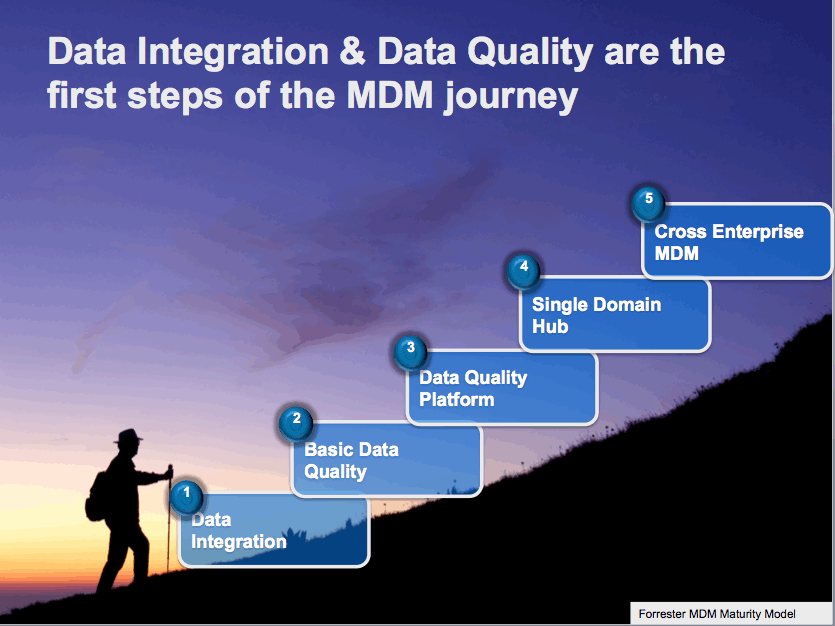KID : MDM Strategy Definition
An MDM strategy is not an approach to a specific MDM program or initiative, it is the overarching governance that defines the goals, reasons, approach and standards by which individual initiatives will be implemented. For long term success in MDM it is imperative that a MDM strategy is defined prior to any implementation at any level.
At a basic level, MDM seeks to ensure that an organization does not use multiple (potentially inconsistent) versions of the same master data in different parts of its operations, which can occur in large organizations.
Analytical MDM concentrates on data warehousing, business intelligence, reporting and analytical applications.

Within an analytical MDM implementation the data hub obtains data from operational systems, processes the data to resolve entities and relationships and sends high quality data to the consuming analytical systems.
An integration style where the data flows in one direction and bi-directional synchronization is not required results in lower risks and costs. There is also no explicit desire to clean up the source data.
Analytical MDM has the lowest costs and implementation risks.
Operational MDM typically requires bi-directional synchronization between the data hub and operational systems, which increases the cost and risk. Operational MDM is a form of MDM that explicitly seeks, as part of its governance routines, to clean up source data once errors are found in the business.
KID offers MDM Strategy Definition services that will assist you in defining the strategy and then implementing it.